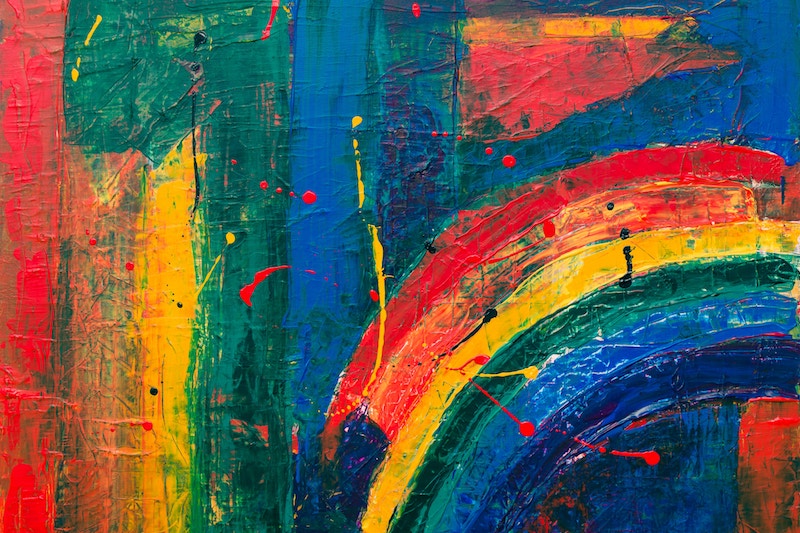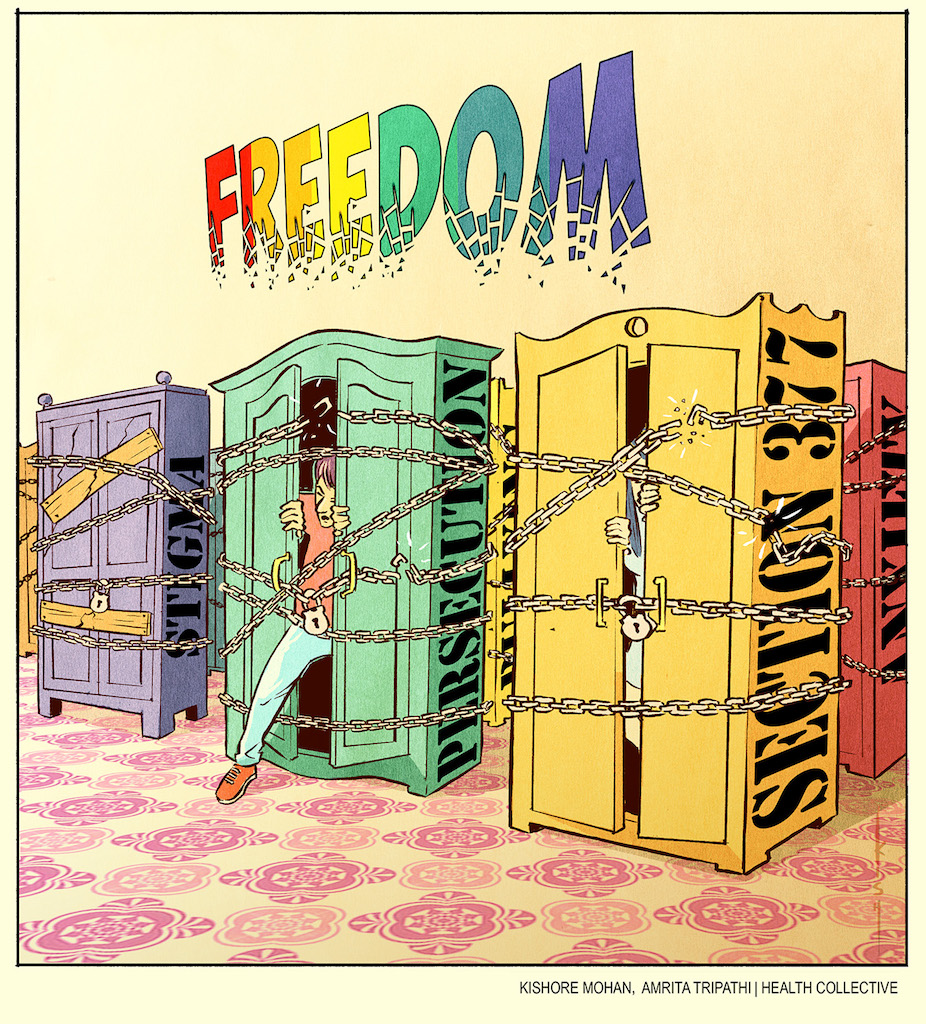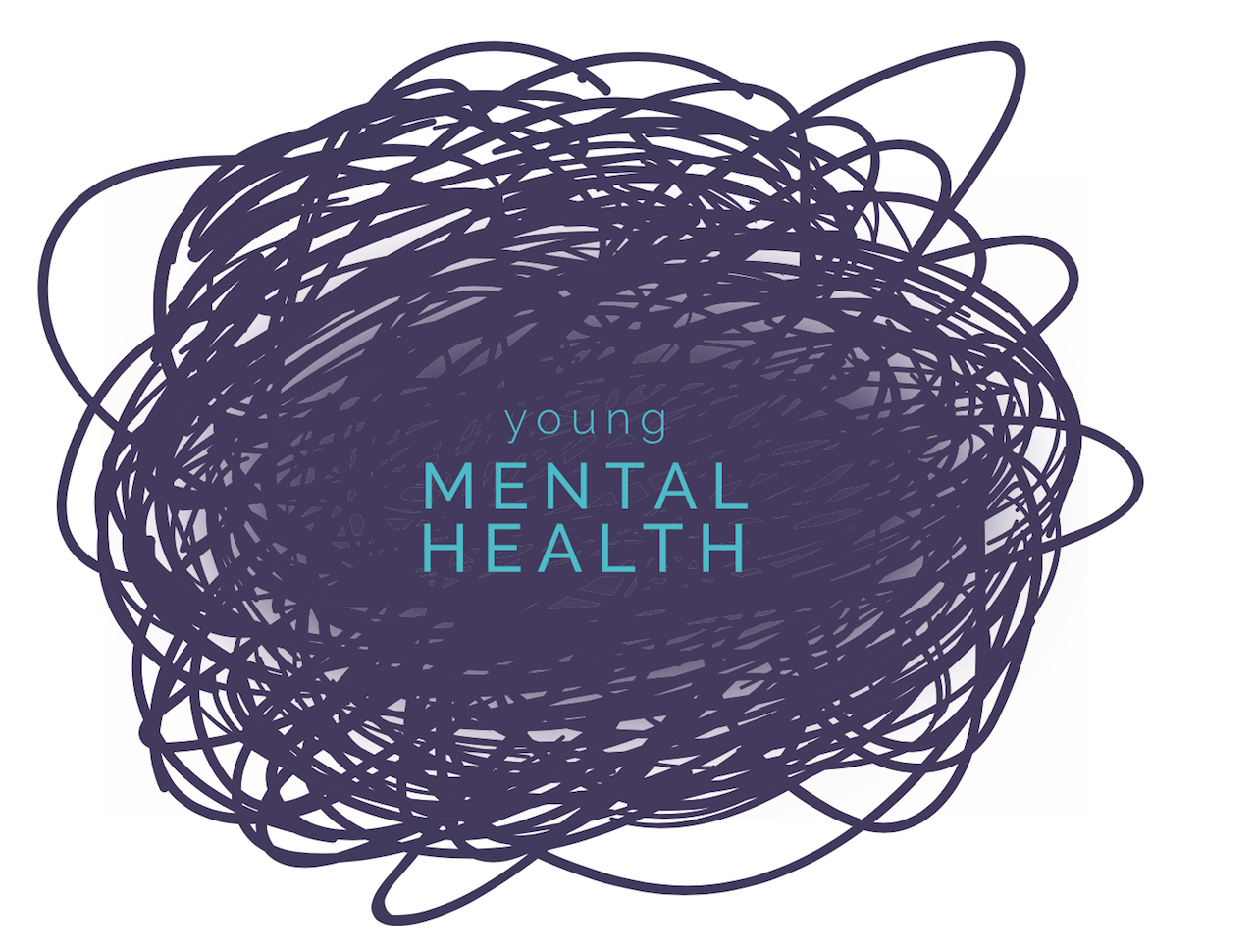The Freedom Series: Mental Health and the Queer Community
By Devanik Saha
More than 60 million people in India are estimated to suffer from some form of mental illness. Some communities are particularly vulnerable and under-served.
“Tackling one’s mental health is one of the biggest challenges for any LGBTQ+ person. Given India’s societal stereotypes, accepting your own gender identity and bodily changes is a difficult task,” Nitasha Biswas, Miss Transqueen and Miss International India 2018, tells The Health Collective.
ALSO READ: MENTAL HEALTH AND THE LGBTQ+ COMMUNITY
“Mental health issues are rampant among LGBTQ+ populations, primarily due to stigmatisation, discrimination and the guilt associated with being ‘different’. They (often) also feel that they are making their parents unhappy which adds to the stress,” says Dr Prasad Raj Dandekar, the founder of Health Professionals for Queer India (HPQI), an initiative which works with the medical fraternity to make them aware of LGBTQ+ issues.
Smriti Singh*, a development professional from Delhi, who identifies as a lesbian, says, “All the people I know who identify as lesbian have had some mental health issue. Maybe depression, maybe anxiety, and sometimes even worse.”
She includes her own case. “I have had mental health issues since I was 15. I did not know at that time when I was 15 that one of the major causes of this anxiety was the conflicting nature of my sexuality with the prescribed norm. I grew up with homophobia because it was ingrained into me. The word “lesbian” was used as an insult, particularly by my guy friends when a girl would not respond to them. I felt then that what I was feeling was wrong,” says Singh*.

These are powerful statements, but anecdotal in nature, which brings us to a major issue, as is often the case when it comes to mental illness in India: Lack of adequate data.
ALSO READ: MENTAL HEALTH AND POP CULTURE
Dr. Soumitra Pathare, a psychiatrist and co-ordinator, Centre for Mental Health Law and Policy shares some insight. “Given that homosexuality is illegal in India, it is tough to do research studies,” he tells The Health Collective. He adds that it’s not just a lack of data for the community, but broadly an issue when it comes to mental health in India. “Thirdly, in any context, minorities, whether it be gender, sexual, caste or community, always get less attention than the majority,” he adds.
However, there are studies in other countries we can refer to. For instance, self-reported identification as non-heterosexual was associated with unhappiness, neurotic disorders, suicidal thoughts and harm, according to this 2007 study conducted in the United Kingdom.
“Self-reported identification as non-heterosexual (determined by both orientation and sexual partnership, separately) was associated with unhappiness, neurotic disorders overall, depressive episodes, generalised anxiety disorder, obsessive–compulsive disorder, phobic disorder, probable psychosis, suicidal thoughts and acts, self-harm and alcohol and drug dependence. Mental health-related general practitioner consultations and community care service use over the previous year were also elevated.”
(Chakraborty, A., McManus, S., Brugha, T., Bebbington, P., & King, M. (2011). Mental health of the non-heterosexual population of England. British Journal of Psychiatry, 198(2), 143-148. doi:10.1192/bjp.bp.110.082271)
Back home, there is a need to understand just when people are most vulnerable, and how to offer help. “We face discrimination from the society which affects us too, but personally, I think the major juncture at which a person needs help is when they are in the process of accepting gender identity and fluidity, which do not conform to heteronormative standards,” says Biswas.
ALSO SEE: UNDERSTANDING THERAPY
One of the major challenges seems to be that the experts aren’t always aware about issues to do with sexuality. “Unfortunately, there is not much awareness within medical community about LGBTQ+ issues, as these topics are not included in medical education in India,” says Dr Dandekar. “Thus, if a LGBTQ+ person comes to them to seek help, most doctors would not be able to help them effectively. This needs to change,” said Dr. Dandekar. “Though HPQI, we are in talks with few medical colleges in the country to see how these issues can be incorporated in medical education.”
Bhuwan Kathuria, a marketing consultant and equal rights activist, highlighted this issue as well. “In my experience, most practitioners are not trained professionally to deal with issues faced by the queer community. To this day, a lot of them recommend cures and corrective therapy. There is no consolidated credible resource available online that lists out queer friendly psychologists, counsellors or psychiatrists, which speaks volumes about the situation in metro cities and one cannot even imagine the plight of queer people in tier 2 and tier 3 cities.”
I raised the issue about lack of awareness about LGBTQ+ issues among psychiatrists in a recent Twitter chat organised by the Health Collective with contributor and psychologist Scherezade Siobhan.
Apart from more queer-identified therapists, we need therapists who are trained to understand the language and history of queer movements both globally and locally. Stigma ends when discrimination ends. The focus has to be directed towards centering queer mental health & needs. https://t.co/6kqNkooxtF
— scherezadenfreude (@zaharaesque) July 27, 2018
Kathuria added that cost is a major factor too. “Accessing help from psychiatrists has a direct bearing on the person’s privilege as most of them mental health practitioners are extremely expensive and almost inaccessible to a lot of people, irrespective of their sexuality or gender identity.”
GETTING HELP: iCALL’s crowd-sourced list of mental health professionals includes those friendly to the LGBTQ+ community
Watch out for more in our special series on The Health Collective. And don’t forget: We want to hear from you, and include you in our conversations and coverage. Do reach out with your thoughts and comments.




Pingback: PRIDE AND LOVE: HOW TO NAVIGATE INTIMACY AND EMOTIONAL HEALTH
Pingback: Interviewing Miss International Queen